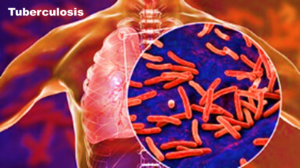
17-Hydroxyprogesterone Caproate (17-OHPC)
EMA Recommends Suspension of Medicines Containing 17-Hydroxyprogesterone Caproate (17-OHPC) Due to Cancer Concerns and Ineffectiveness
In a recent recommendation, the European Medicines Agency’s (EMA) Pharmacovigilance Risk Assessment Committee (PRAC) has advised the suspension of marketing authorizations for medicines containing 17-hydroxyprogesterone caproate (17-OHPC), a synthetic progestogen commonly used in several European Union (EU) countries. This move comes in light of concerns raised over the potential increased cancer risk linked to the use of 17-OHPC and evidence questioning its effectiveness in preventing premature births.
What is 17-Hydroxyprogesterone Caproate?
17-OHPC is a synthetic hormone similar to progesterone, which is used in various treatments for pregnant women, including the prevention of pregnancy loss and premature birth. The hormone is administered through injections and is also prescribed for treating gynecological and fertility disorders associated with low progesterone levels.
Key Findings from the PRAC Review
The PRAC’s decision follows a comprehensive review of recent research, including a large population-based study that assessed the long-term risks of cancer in individuals exposed to 17-OHPC in the womb. The study, which tracked participants for around 50 years from birth, suggested a possible increased risk of cancer for those exposed to the medicine during pregnancy. However, the PRAC emphasized that the number of cancer cases was small, and the study had limitations, such as insufficient data on other cancer risk factors.
Despite the uncertainty about the definitive cancer risk, the PRAC acknowledged the possibility but could not confirm it due to the available data’s limitations. This conclusion, paired with concerns regarding the drug’s efficacy, led to their recommendation to suspend marketing authorizations.
Ineffectiveness of 17-Hydroxyprogesterone Caproate (17-OHPC)
The review also considered newer studies showing that 17-OHPC is not effective in preventing premature birth, one of its primary uses. There are also limited data supporting its effectiveness in other conditions it is authorized for, such as various gynecological and fertility disorders. Given these findings, the PRAC concluded that the benefits of 17-OHPC no longer outweigh its potential risks.
A read on this article is suggested; WHO Approves New TB Test to Help Fight Drug-Resistant Strains
What Does This Mean for Patients?
As the PRAC has recommended the suspension of 17-OHPC’s marketing authorizations, patients who have been using these medications will need to explore alternative treatment options. While the potential cancer risk associated with 17-OHPC remains inconclusive, the concerns raised, alongside its demonstrated lack of efficacy, justify the suspension of its use.
For women who have been prescribed 17-OHPC for preventing premature birth or other reproductive health issues, healthcare providers will recommend alternative therapies. These treatments are available and should be discussed with a doctor to ensure the best course of action moving forward.
The Path Ahead
This decision by the PRAC highlights the critical role of continuous research and monitoring of medicinal products in ensuring patient safety. While 17-OHPC was once considered a useful treatment, ongoing studies and emerging evidence reveal the importance of reassessing medicines based on updated scientific data.
For now, patients who were using 17-OHPC can look to other available and more effective treatments, ensuring their health and well-being are prioritized.
Stay informed on the latest updates in the medical field through Vistow’s Medicine category, where we bring you timely news on drug safety, treatment advances, and healthcare innovations.



